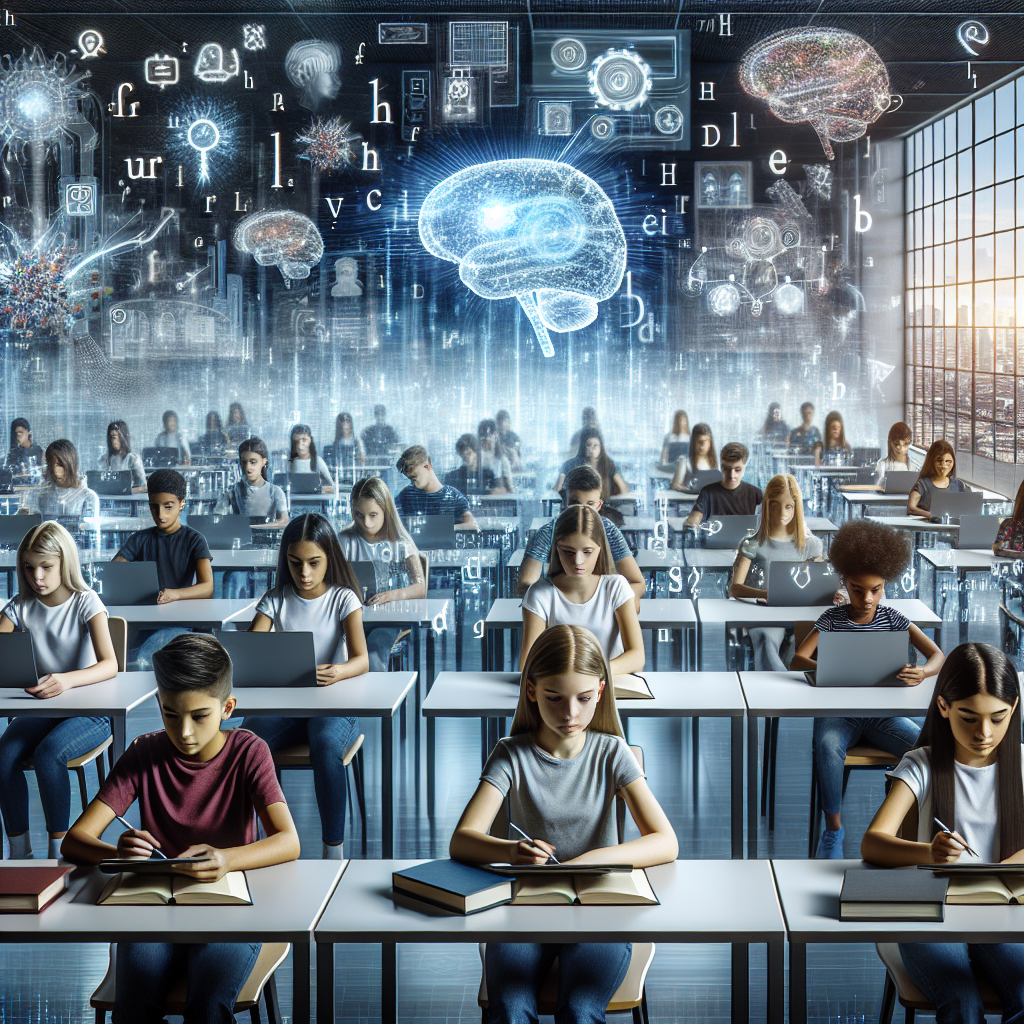Natural Language Processing (NLP) has become an increasingly important field in education, with the potential to revolutionize the way students learn and teachers teach. NLP is a branch of artificial intelligence that focuses on the interaction between computers and humans using natural language. It involves the development of algorithms and models that enable computers to understand, interpret, and generate human language.
In the education sector, NLP holds great promise for improving the learning experience for students and enhancing the efficiency of teachers. From personalized learning to automated grading, NLP technologies have the potential to transform the way education is delivered and received. In this article, we will explore the future of NLP in education and its potential impact on the learning experience.
Personalized Learning
One of the key benefits of NLP in education is its ability to personalize the learning experience for each student. By analyzing students’ language data, NLP algorithms can identify their strengths and weaknesses, learning styles, and preferences. This information can then be used to create personalized learning plans that cater to each student’s individual needs.
For example, NLP-powered learning platforms can recommend specific resources, exercises, and activities based on a student’s learning profile. This not only helps students learn more effectively but also keeps them engaged and motivated. By providing personalized feedback and support, NLP technologies can help students reach their full potential and achieve better learning outcomes.
Automated Grading
Another area where NLP can make a significant impact in education is automated grading. Traditional grading methods can be time-consuming and subjective, leading to inconsistencies and biases. NLP algorithms can automate the grading process, allowing teachers to provide faster and more accurate feedback to students.
By analyzing students’ responses to questions and assignments, NLP algorithms can assess their understanding of the material, writing skills, and critical thinking abilities. This automated grading system can help teachers save time and focus on more meaningful tasks, such as designing engaging lessons and providing personalized support to students.
Language Learning
NLP technologies can also be used to enhance language learning in the classroom. By analyzing students’ language data, NLP algorithms can identify common errors, patterns, and areas for improvement. This information can be used to create targeted exercises and activities that help students improve their language skills.
For example, NLP-powered language learning platforms can provide instant feedback on students’ pronunciation, grammar, and vocabulary usage. By identifying and correcting errors in real-time, these platforms can help students learn more effectively and efficiently. NLP technologies can also generate personalized language exercises and quizzes based on students’ proficiency levels, ensuring that they are appropriately challenged and supported in their language learning journey.
Virtual Assistants
Virtual assistants powered by NLP technologies can also play a crucial role in education. These intelligent systems can help students navigate learning materials, answer questions, and provide support in real-time. Virtual assistants can also assist teachers in managing classroom activities, grading assignments, and communicating with students and parents.
By leveraging NLP algorithms, virtual assistants can understand and respond to natural language queries, making them more intuitive and user-friendly. These virtual assistants can enhance the learning experience by providing personalized recommendations, reminders, and feedback to students. They can also help teachers streamline administrative tasks and focus on delivering high-quality instruction to their students.
Challenges and Considerations
While the future of NLP in education looks promising, there are still challenges and considerations that need to be addressed. One of the main challenges is the ethical use of NLP technologies in education. As NLP algorithms become more advanced, there is a risk of bias, discrimination, and privacy violations. It is essential to ensure that NLP technologies are used ethically and responsibly to protect students’ rights and promote equity in education.
Another challenge is the need for continuous training and professional development for teachers to effectively integrate NLP technologies into their teaching practice. Teachers need to be equipped with the necessary skills and knowledge to leverage NLP technologies in the classroom and support students’ learning effectively. Providing ongoing training and support for teachers will be crucial to the successful implementation of NLP technologies in education.
FAQs
Q: How can NLP technologies enhance the learning experience for students?
A: NLP technologies can personalize learning for students, automate grading, improve language learning, and provide virtual assistants to support students and teachers in the classroom.
Q: What are some challenges of using NLP technologies in education?
A: Some challenges include ethical considerations, such as bias and privacy concerns, as well as the need for continuous training and professional development for teachers.
Q: How can NLP technologies be used to improve language learning?
A: NLP technologies can analyze students’ language data to identify errors, patterns, and areas for improvement. This information can be used to create targeted exercises and activities to help students improve their language skills.
Q: How can virtual assistants powered by NLP technologies support students and teachers in the classroom?
A: Virtual assistants can help students navigate learning materials, answer questions, provide support, and assist teachers in managing classroom activities, grading assignments, and communicating with students and parents.
In conclusion, the future of NLP in education looks promising, with the potential to revolutionize the way students learn and teachers teach. From personalized learning to automated grading, NLP technologies have the power to enhance the learning experience for students and improve the efficiency of teachers. By addressing challenges and considerations, such as ethical use and professional development, we can ensure that NLP technologies are used responsibly and effectively in education. As we continue to innovate and explore the possibilities of NLP in education, we can look forward to a more personalized, engaging, and effective learning experience for all students.

